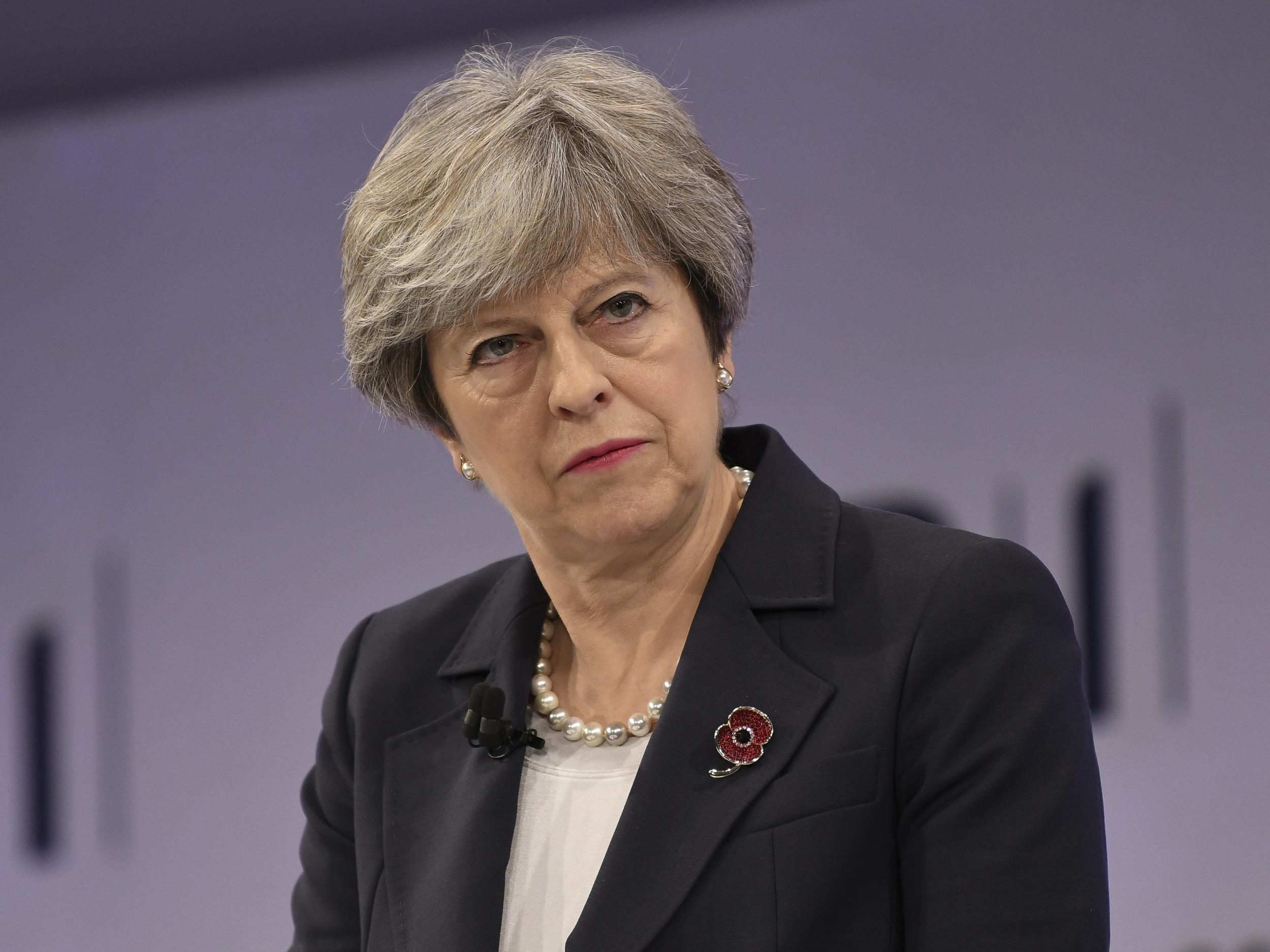Despite being a female Prime Minister, Theresa May hasn't done anything about the gender pay gap
The gap has remained the same for the past three years which is a shocking indictment on this Government’s failure to improve pay


Your support helps us to tell the story
From reproductive rights to climate change to Big Tech, The Independent is on the ground when the story is developing. Whether it's investigating the financials of Elon Musk's pro-Trump PAC or producing our latest documentary, 'The A Word', which shines a light on the American women fighting for reproductive rights, we know how important it is to parse out the facts from the messaging.
At such a critical moment in US history, we need reporters on the ground. Your donation allows us to keep sending journalists to speak to both sides of the story.
The Independent is trusted by Americans across the entire political spectrum. And unlike many other quality news outlets, we choose not to lock Americans out of our reporting and analysis with paywalls. We believe quality journalism should be available to everyone, paid for by those who can afford it.
Your support makes all the difference.Today is Equal Pay Day in the UK. What at first sounds like a day for celebration, in fact marks the date where women stop earning relative to men. So, from today, we in effect work the rest of the year for free – that’s 51 days until we hit 2018 – all because of the gender pay gap.
According to data released by the Fawcett Society based on the ONS’ annual survey of hours and earnings, the pay gap for full-time workers is 14.1 per cent. The gap has remained the same for the past three years which is a shocking indictment on this Government’s failure to improve pay and conditions for women and their families.
For women from diverse communities the situation is particularly bad, with women from black African backgrounds in full-time work being paid 19.6 per cent less than their white male counterparts.
When we look at the economy as a whole, including both full-time and part-time work, the gap for all women is even greater, with women being paid on average nearly 20 per cent less than men.
The fact that a pay gap still exists, 47 years after the Equal Pay Act was introduced by a Labour Government, highlights the need for a renewed national effort, and Government action.
We must not let the pay gap be normalised. To close it, we need a determined effort by Government, working with businesses and wider society. But I fear that at this rate of progress, or lack thereof, the gender pay gap will take many decades to be eliminated, if at all.
When Theresa May became Prime Minister she stood on the steps of Downing Street, promising to fight the burning injustices which blight our society. The reality, beyond these warm words, is that this Government has enhanced inequality.
The Conservatives’ failed austerity agenda has hit women the hardest. Women have borne the brunt of 86 per cent of the Government’s cuts.
Other Government policies, such as Employment Tribunal Fees, have disproportionally impacted women, pricing women out of seeking justice for discrimination in the workplace. Labour pledged to scrap tribunal fees, and the Supreme Court has now declared them unlawful and discriminatory.
This record of failure shows that although we have a woman Prime Minister, this has not been used to advance the position of women across our society.
It was Labour that introduced the Equal Pay Act in 1970 and the next Labour Government will tackle unequal pay once and for all. We must take strong action once again, and deliver a fairer, more equal society.
It is vital that we introduce equal pay audit requirements on all large employers, on the basis of race, as well as gender, and introduce a civil enforcement system to ensure compliance with equal pay auditing.
The Government should also raise the minimum wage to the level of the living wage. Labour hope this will become at least £10 per hour by 2020. After all, 60 per cent of those earning less than the real living wage are women. It’s the Government’s responsibility to address the underlying structural issues that allow these disparities to exist, including insecurity around self-employment, exploitative zero-hours contracts, maternity discrimination and the low value put on care, hospitality, and public sector work.
Labour in Government will conduct a gender audit on all policy and legislation for its impact on women before implementation. Had this been in place already, the Tories could not have pursued an austerity programme which has had such a devastating impact on women.
Labour is the party of equality and in Government we will take the necessary action to end the scourge of unequal pay once and for all.
Dawn Butler MP is Labour's Shadow Secretary of State for Women and Equalities
Join our commenting forum
Join thought-provoking conversations, follow other Independent readers and see their replies
Comments